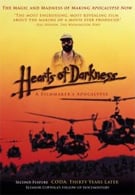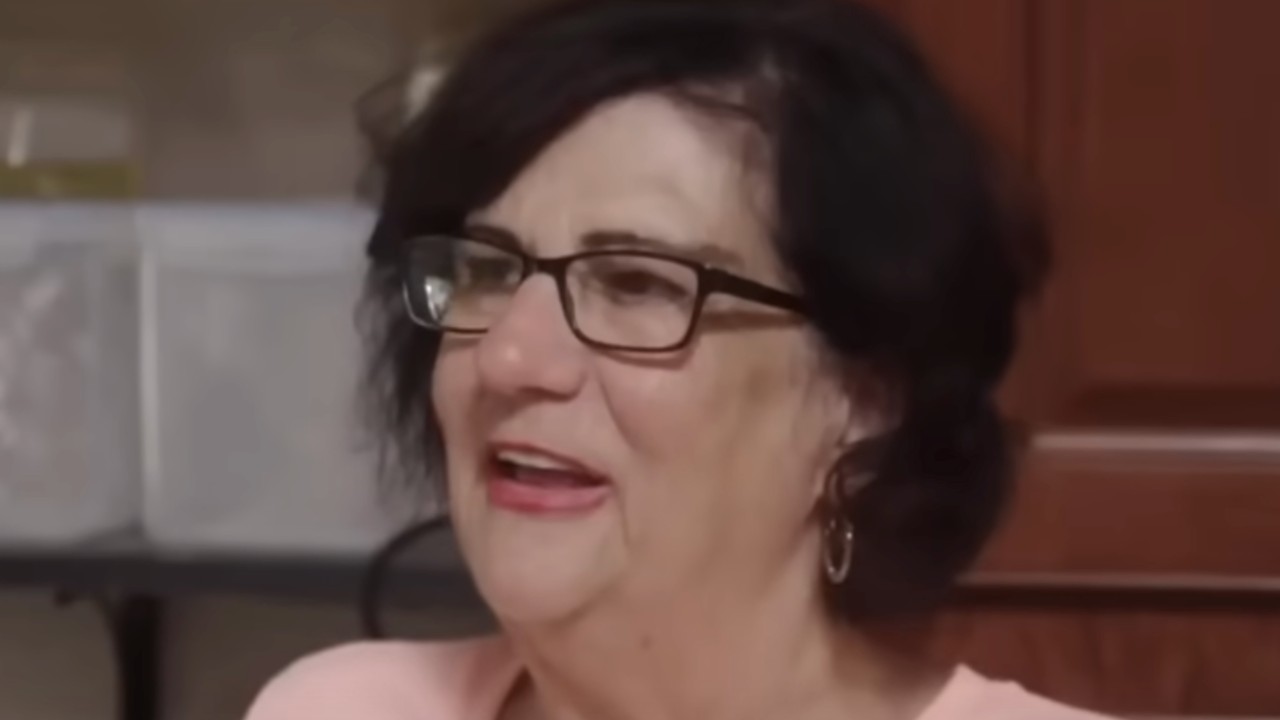Some movies are brilliant from concept to execution. They are built from an amazing idea that follows the project, molded into every element with careful planning. Other movies fall together precariously. They could easily have turned out a fiasco, and if they wind up as something brilliant, it’s merely by happenstance. Hearts of Darkness: A Filmmaker’s Apocalypse reveals that Apocalypse Now easily could have turned out a fiasco, and it’s really only due to luck that Francis Ford Coppola has a career after the film was completed. I love the concept of Hearts of Darkness. It’s a making-of documentary back when those weren’t status quo, and a look at both the art of movie making and the artist Francis Ford Coppola from one of the people closest to him: his wife Eleanor Coppola. Originally intended to show the studio what was being done and to serve as a promotional tool, Eleanor dug into private recordings and her own diary to flesh out what could have been a cinematic disaster.
The problems that hounded Apocalypse Now are the stories of legend. Filming in the Philippians in the midst of a revolution, which meant the local government’s borrowed military helicopters could be (and were) pulled from working on the film at any given moment. Getting on location and deciding after a week to replace leading man Harvey Keitel, then replacement leading man Martin Sheen’s sudden heart attack, affecting his work schedule. Continually proceeding on a movie without actually knowing where the story was leading. And, of course, the famed disaster of using Marlon Brando, who was paid an exorbitant amount of money and then showed up completely unprepared: fat, and without the requisite background knowledge of either the script or Heart of Darkness, upon which Apocalypse Now was loosely based.
With all of those obstacles, there’s no wonder why Francis Ford Coppola spends a great deal of Hearts of Darkness feeling insecure. Where other people have great faith in the filmmaker’s ability (following the first two Godfather films), Coppola is certain he’s making a twenty million dollar pile of shit. The film poses existential questions but Coppola doesn’t have any answers and doesn’t think his movie does either. Yet he continues work, mainly because he has no choice. The director was too financially bound to the project, putting most of his assets up as collateral or for hock to raise the money.
Through all of this Eleanor Coppola is surprisingly neutral about what’s going on. She captures footage that doesn’t necessarily show her husband in the best light. She too is facing a financial crisis, but that never appears in her filming choices or her voice. Of course, part of that may be because this isn’t completely her movie – her footage was later put into this documentary by Fax Behr and George Hickenlooper, who receive the writing and directing credit for the picture, but there’s no denying the wife’s influence on what we see and hear, as Francis is more candid and honest with his wife than he probably would have been with an outsider.
Figures like Francis Ford Coppola are so renowned for classic movies, it’s easy to put them up on a pedestal as legendary figures of Hollywood. It’s kind of refreshing to have documentaries like Hearts of Darkness to show that Coppola’s seat-of-his-pants style doesn’t always work and could have led to tragedy instead of success. There’s no denying Coppola’s influence in Hollywood, especially his studio Zoetrope acting as an inspiration for modern day indie filmmakers, but Hearts of Darkness deconstructs the legend, reveals his insecurities, and even acts as a bit of a warning to those who would follow in Coppola’s footsteps: tread lightly, because success is never guaranteed. Despite how good it is, it’s kind of hard to rank Hearts of Darkness as a DVD release. We’ve grown so accustomed to making-of documentaries serving as supporting material on a DVD, it’s hard to think of one being the main feature of a release. I even commented in my review of last year’s Apocalypse Now: The Complete Dossier that Hearts of Darkness should have been included for it to truly be “complete”. So think of this more as the supplementary disc we should have gotten a year ago.
The transfer of the documentary is good for the most part. I noticed a little bit of video glitches – hiccups in between scenes a few times. At one point there also seemed to be an issue with the audio, with center channel audio leaking into the left/right channels momentarily and then correcting itself. Decades old footage looks pretty clear, though, and the footage from Apocalypse Now looks as clear as the remastered release that came out in The Complete Dossier.
A commentary track accompanies the documentary, which is slightly surreal, again because it’s not the norm when it comes to DVD releases. Francis and Eleanor reflect on what it was like making the movie and the documentary. Clearly they’ve been separated enough from the stressful times that they can look back and laugh quite a bit now, which actually reduces the weight of the crisis they almost found themselves in making the movie.
The only other material on the disc is another making-of documentary (no, it’s not a making-of Hearts of Darkness - we haven’t mined that far into the world of meta yet). Instead it’s titled Coda: Thirty Years Later, although that title is a bit misleading. Instead of a look back, this is a making-of documentary for Coppola’s latest film, Youth Without Youth. While it could have served as an interesting look at how Coppola has changed (or not changed) over thirty years, it’s more focused on this other movie. The problem is that Youth Without Youth isn’t as saturated in culture as Apocalypse Now and it’s hard to care about the making of a movie that many people haven’t seen. Coppola is still asking existential questions, but without the common ground of the movie the documentary is about, he just sounds like he’s rambling on about what “conscience” is – which actually turns me off from wanting to see Youth Without Youth for fear it may be the same thing thematically.
I still think Hearts of Darkness would have been better served as part of an Apocalypse Now release, accompanying the movie it analyzes, but just getting it released is a great thing. The bonus materials aren’t all that fantastic, but the documentary itself is worth a look, if only to deconstruct a classic movie and filmmaker a little.
Joe Hendry Reveals How The WWE Snuck Him Into WrestleMania 41 For Randy Orton Match, And Confirms How Seriously They Take Surprise Appearances
Greg's Mom Seemed Like Another Nightmare 90 Day Fiancê Mother-In-Law, But She Changed My Mind
The Last Of Us Season 2 Episode 3 Live Blog: I'm Talking The Aftermath Of Joel's Tragedy, Ellie's Recovery And More











